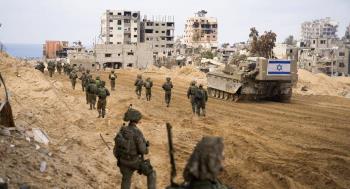Alwaght- Saudi Arabia is tasked with hosting a meeting of the Syrian opposition groups to select members of the opposition delegation to negotiate with the Syrian legitimate government, while its allies Qatar and Turkey have already failed to fulfill the same mission.
Abdel Bari Atwan, editor-in-chief of London-based Rai al-Youm newspaper, has said that these days Saudi Arabia was facing a great trouble of holding a meeting for Syria’s opposition groups. In the meeting, the members of the negotiation would be chosen to talk with the Damascus’ delegation about cases such as the nature of the transitional period, the leading government and also the agreed authorities transitional government should enjoy.
Saudi Arabia was assigned this difficult role following the last Saturday’s Vienna conference on Syria, which was attended by foreign ministers of over 17 countries including John Kerry, the US Secretary of State, and Sergey Lavrov, the Russian Foreign Minister.
The issue Saudi Arabia is facing with is multidimensional, the most significant dimension of which is that Saudi Arabia has never hosted a meeting for the Syrian opposition in the country unlike its allies Qatar and Turkey, while Saudi Arabia is considered as the major arms and financial supplier of the Syrian opposition. The second dimension is that the task is highly complicated due to the multiplicity of the Syrian opposition groups and their heads, the growing divisions between them and, most importantly, their different political and regional dependence.
Mid-December is set by mission as the deadline for holding the Syrian opposition meeting. Then the meeting should be held before the scheduled date. The contacts are underway to determine the exact date and place of the gathering, and it is likely that it would be held in Saudi coastal city of Jeddah.
Information owned by Rai al-Youm newspaper shows that not Adel al-Jubeir, the Saudi Arabia’s Foreign Minister, but a Saudi prince who is a grandson of King Faisal, the former ruler of Saudi Arabia, is responsible for the case. The young prince is coordinating with two Saudi powerful men. One is Mohammad bin Nayef, the crown prince of Saudi Arabia, and Mohammad bin Salman, the deputy crown prince of Saudi Arabia. The responsible prince also met one of the Syrian opposition groups’ representatives on the sidelines of Vienna peace conference.
The information also insists that Riyadh firstly had prepared a long list, but it reduced the members after consulting with its allies Doha and Ankara, so edited list focuses on more valid and major opposition groups.
A variety of setbacks are standing ahead of Jeddah meeting. The most noticeable one, In addition to being linked to the Jeddah meeting, is related to the form of representation of most of Syrian opposition groups in the proposed delegation too. On the other hand, Saudi Arabia supports some opposition groups against the other ones.
Another major hurdle is about the way the internal Syrian opposition groups would attend the meeting. It is still unclear if the Syrian government will allow them to leave the country to take part in Jeddah conference.
Still another problem is about attendance of Syria’s Muslim Brotherhood, the Cairo Conference groups and other extremist groups.
The Saudi mission is highly difficult, as avoiding it represents an immense diplomatic challenge for Riyadh especially that Iran is still opposing the choosing (of Arabia), while the Syrian government’s official role cannot be ignored. Syria backs Iran’s stance and considers Saudi Arabia as its enemy because of Riyadh’s ongoing support for the armed rebels and also because Adel al-Jubeir has repeatedly called for the Syrian president to step down before any political process is started.
It must be assumed that the Jeddah conference is like a minefield previously tested by Qatar and Turkey for safe passage, however, they failed to come out with a tangible success. Even the Syrian National Coalition, which is a product of Qatari-Turkish struggles with a Saudi support, is breathing its last, and even one of the Syrian opposition groups dubbed al-Jabha al-Shamiya (or Levant Front in English) has rejected to allow the coalition’s Prime Minister Ahmed Taama to visit the rebel-held areas.
Saudi Arabia’s success in its task depends on its flexibility, neutrality, making concessions, and broad tolerance. But, these features still do not exist.
But, failure in the mission means the case would be referred to the UN and Staffan de Mistura, the UN and Arab League Envoy to Syria, would himself choose the negotiation delegation as a last resort.
Would Saudi Arabia succeed in fulfilling its complicated and hard mission while having less than three weeks left?


























